- Home
- Daniel Defoe
An American Robinson Crusoe Page 4
An American Robinson Crusoe Read online
Page 4
XXII
ROBINSON'S DIARY
Robinson was much disturbed because he had no means of keeping arecord of things as they happened from day to day. He had hiscalendar, it is true. He would not lose track of the time. But hewished for some way to write down his thoughts and what happened. Sohe kept up keen search for anything that would serve him for thispurpose.
Every time he journeyed about the island he kept careful watch forsomething that he might write upon. He thought of the leaves of thepalm tree, the white under surface of the shelf fungus. But these hefound would not do. He tried many kinds of bark and leaves. There wasa kind of tall reed or grass growing in the marshes whose rind seemedgood when dried. He examined the inner bark of many trees. He at lastfound that the inner bark of a tree which resembled our elm treeworked best. He would cut through the bark with his stone knife aroundthe tree. At about one foot from this he would cut another ring. Hethen would cut through the bark lengthwise from one circular cut tothe other. He could then peel off the section easily. While it wasyet full of sap he would separate the soft, tough, thin inner layerof the bark. This usually came off in sheets without a break. Whenthese sheets of bark were stretched and dried they could be used verynicely instead of paper.
Robinson next searched for something that would serve him as ink, andthis was much easier to find than paper. He had noticed many kindsof galls of many different colors growing on trees. He did not knowwhat they were, or how they grew, but he had learned in his father'sstore that ink was often made from galls gathered from trees. "Anyway,"he thought, "I can get ink from the cuttle-fish." He had watched thisanimal get away from its enemies by sending out a cloud of purplishfluid, in which to hide as it darted away. He had learned also thatindigo is made from the leaves of a plant. He had noticed a plantgrowing in the open places in the forest whose leaves turned blackwhen dried.
Robinson gathered a quantity of gall-nuts and soaked them in water.To the black fluid thus obtained he added a little rice water to makeit flow well, and this served very well as an ink. He kept his inkin a cup made from a cocoanut shell.
He was not long in getting a pen, though the lack of a good sharpknife made it hard to make a good one. In going about he had gathereda quantity of large feathers. He saved these for the time when heshould have his paper and ink ready. Now, he cut away a quill to apoint and split it up a little way. He was now supplied with writingmaterials. "Is it not wonderful," he thought, "how all our wants arefilled? We have only to want a thing badly enough and it comes."
Robinson began at once to write down the date for each day and themain thing he did or that happened on it. He called this his diary.He had now a better way of keeping time than on his tree calendar.He did not need it any more.
You have no doubt wondered how Robinson could work in his cave,especially at night without a light. The truth is, it was a greatsource of discomfort to him. At sunset he was in total darkness inhis cave. During the day light enough streamed in from the open doorway.To be alone in total darkness is not pleasant. "If I only had fire!"he said again and again.
He watched the many large beetles and fireflies flash their light inthe dark of the evening as he sat in front of his shelter. The thoughtcame to him that if he only had some way of keeping together a numberof them, they would serve very well for a candle in his cave at night.How he longed for a glass bottle such as he had so often wantonlybroken when at home! Back of his shelter there was a hill where therock layers jutted out. He had noticed here several times the thintransparent rock that he had seen in his father's store. It is calledisinglass.
"I will make a living lantern," he said aloud in his eagerness.
He soon had a suitable piece pried loose. He cut a part of a cocoanutshell away and in its place he put a sheet of isinglass. That eveningat dark he gathered several handfuls of the great fire beetles andput them in his lantern. What joy their glow gave him in his cave atnight. It was almost as much comfort as a companion. But while itlighted up the deep dark of the cave and enabled him to move about,he was unable after all to write in his diary at night. Every morninghe set his captives free. In the evening he would go out and capturehis light.
XXIII
ROBINSON IS SICK
One evening Robinson went to bed sound and well. The next morning hewas sick. Before he had only the heat of the day to complain of.To-day he was freezing. He wanted to go to work to get warm, but eventhis did not break his chill. It increased till his teeth chatteredwith the cold.
"Perhaps," thought he, "if I can sleep a little I will get better."But he could not sleep. He was burning with fever and then shakingwith cold by turns. He felt a strong thirst, but he was so weak thathe could scarcely get the goat's milk. He had no sooner drunk the milkthan his tongue was as dry as before. He felt better after a nightof sleep, but the next day his fever and chills were worse than before.Then he bethought him of his parents. How kindly his mother had takencare of him! Now no one was near that could assist him.
"Ah," he sighed, "must I die here? Who would bury me? There is no oneto miss me." At this the tears came to his eyes.
His sickness increased with each day. Occasionally the fever wouldgo down sufficiently to allow him to get something to eat. Then itwould be worse than before. In his dire need he wanted to pray, buthe was so weak that he could only stammer, "Dear God, help me, or Ishall die!"
One night he had a strange dream. He thought he saw his good oldfather standing before him calling to him. He spread out his arms andcried aloud, "Here I am, here I am!" He tried to get up, but he wasso weak that he fell back fainting.
He lay there a long time, but finally came to. He felt a burningthirst, but no one reached him a drop of water. He prepared to die.He folded his hands and prayed to God that he would be merciful tohim. He prayed forgiveness from his parents. Once more he raised hishead and gazed wildly around, then he sank back and knew no more.
When he again awoke he felt better. His hot fever had gone. Heattempted to walk. He had just enough strength to crawl to the tableand fetch a shell of water. When he tried to walk he had to sit downat every two or three steps.
From this he recovered gradually, growing better and better, and hethanked God inwardly for his recovery. His sickness had continued fromJune 18 to July 3.
XXIV
ROBINSON'S BOWER
Robinson's sickness set him thinking about his home. He had been soafraid of animals when he came to the island that he thought ofnothing but protection from them. He had been now a year on the islandand had seen nothing more dangerous than a goat. The fear of animalshad practically faded away. In thinking over his sickness he made uphis mind that it was caused by sleeping in his cave where the sunnever shone. The ventilation seemed good, but the walls were damp,especially in the rainy season. Then the water would trickle downthrough the cleft in spite of all he could do.
He resolved to build, if possible, a little cottage, or, as he calledit, a bower, in the yard in front of his shelter. The hedge ofthistles was growing and formed a fence that an animal could not getthrough. His screen of willows on the outside of this would soon hidehim from view from the sea. He had the wall of rock and the hillbehind him.
He planned out his way of building it very carefully. "It must bedone," he said (Robinson formed the habit of talking to himself, sothat he would not forget how to talk), "without hammer, nails, orsaw."
He first sought out four posts, as large as he could well handle.There were always broken trees and branches in the forest. If hesearched long enough he could find posts just suited to his need. Hewanted four of the same thickness and height and with a fork at theend. After long searching he found what he wanted. He was careful toget those that he could drag to his shelter.
He placed these in the ground, forming the corners of a square aboutten feet long. In the forks he placed poles running around about eightfeet from the ground. At about every three feet he fastened others,running in the same way, with heavy cords made of fibre. He found hisgreatest trouble with the roof. It must be sloped to shed rain. Hehad to find two more forked posts, three or four feet longer than theothers. These he placed opposite each other in the centers of twosides. Upon these he placed a ridge pole. He then laid other poleslengthwise from ridge pole to the edge of the frames.
His frame was now done. His plan was now to cover this frame withstraw or grasses tied in bundles. He had seen the barns in the countrythatched in this way by the Dutch farmers in New York State. Hegathered the straw of the wild rice. It was long, straight and tough.
ROBINSON'S BOWER]
It was easily tied into flat bundles. These he bound securely on tothe frame work with cords. He began at the bottom so that the endsof the row would lap over the tops of the last one put on.
In this way he built a very comfortable and rainproof bower. It waseasy to make a bed of poles covered with straw. A table and bench wereadded and shelves of poles.
Robinson felt great joy over this new home. "I will not now be sickany more," he said. "In case of danger I can get into my cave. Butat all other times I will live in my bower." He had use still for hiscave. He could use it to store some things in. But he had to becareful about the dampness in wet weather.
Robinson was getting to feel at home. He was no longer so sad. He didnot grieve so much for home. He looked upon his home with greatdelight It was secure. He had his herd of goats always in his sight.At evening he would do his milking. He found he could keep the milkfor some time in the cave. He was tempted to try making some butterfrom the good, rich cream. "But," said Robinson, "I have neithervessels to make it in nor bread to eat it on."
He planned many things to do. "I will make a hammock some day for mybower and some vessels to use in my work," he thought.
XXV
ROBINSON AGAIN EXPLORES HIS ISLAND
When Robinson recovered his strength he had a strong desire to seemore of the island. At first he had been in constant fear of wildanimals, but now he thought he would like to see all there was to seein the island. On the 15th of July he started out. First he went toa brook which ran into the sea near his cave. Its water was clear andpure; along its shore lay beautiful meadows. As he came to the uppercourse of the brook the meadow gave way to forest. On the border ofthe forest he found melons and grapes.
The night came on and he slept again in a tree. The next morning hewent farther and came to a clear rivulet. Here the region waswonderfully beautiful. The flowers bloomed as in a garden, and nearthe flowers stood splendid apple and orange trees. He took as muchof the fruit as he could carry and went on his way. This journeycontinued three days. The grapes which he had carried he dried in thesun and made raisins.
The 10th of September came, one year had passed on the island. He wasmany hundred miles from home, alone on an island. With tears he criedout, "Ah! what are my dear parents saying? They have no doubt longgiven me up as dead. If I could only send them a message to comfortthem and let them know how much I love them!"
The day was celebrated as a holiday. He thanked God that He had givenhim so many good things. Often he had lived the whole day in care andanxiety. Now he tried to be more cheerful and to meet the troublesof each day with courage.
But Robinson was not yet satisfied. He longed to know more of theisland and prepared himself for a greater journey. He slung hishunting pouch over his shoulder, filled it full of food, took his bowand arrows, stuck his stone hatchet in his belt and started on hisway. He traveled over meadows, through beautiful forests in which werehundreds of birds. He was delighted as they sang and fluttered about.
The journey was beautiful and pleasant to Robinson. In the forestshe often saw small wild creatures, but he shot nothing. After the firstnight he slept under a tree in the soft grass, for he had now no fearof wild animals.
Along the shore he saw great groves of palms with their large nuts.He saw, too, many goats in all parts of the island.
Now he was ready to take the shortest way home. He had not gone farbefore he came into a dark forest. He became confused and wanderedabout for several days. On the fourth day he came to a little pileof stones, which he had made to mark the way as he was going out. Fromthis place the way was easy to find. On this trip he was gone alreadytwo weeks.
XXVI
ROBINSON AND HIS BIRDS
Of all the things he saw on his journey Robinson was most delightedwith the birds. They were of the most beautiful colors. The forestwas full of them. They gleamed like jewels in the deep masses of foliage.In the morning their singing filled the air with sound.
Robinson had never taken much notice of the birds at home. But nowevery living thing attracted him. He loved to see them happy. He wouldwatch often by the hour and learn the habits of nesting and gettingfood of nearly every bird on the island.
Robinson did not know the names of many of the birds he saw on theisland. He had to make names for them. The strangest thing he saw onhis journey was the nest of what he called the yellow-tail. This birdlives in colonies and makes its nest at the ends of the long leavesof the mountain palm. When he first saw these queer looking sacks hangingfrom the leaves he was amazed. He had never seen so strange a sight.From the end of each great leaf hung a long, closely woven nest.Robinson could not make out at first what they were. Soon, however,he saw the birds come out of the mouths of the nests. Here, one hundredfeet from the ground, they hung their nests. But they were perfectlysafe.
He had not gone far from the tree in which the yellow tails had theirnests when he was suddenly startled by a voice crying, "Who, who areyou?" Robinson was greatly frightened and hid beneath the droopingbranches of a cedar tree. He feared every moment that the owner ofthe voice would make his appearance. But it kept at a distance. Everyfew minutes from the depths of the forest would come the doleful cry,"Who, who are you?" Robinson did not dare to stir from his hidingplace. He remained there over night. After the night came on he heardthe strange voice no more.
The next day he renewed his journey. He saw many birds that werewholly strange to him. There was a kind of wild pigeon that built itshome in a hole in the rock. It was a most beautiful bird with long,slender, graceful feathers in its tail. He saw the frigate birdsoaring high above the island. The number and beauty of thehumming-birds amazed Robinson. They were of all colors. One had a billin the shape of a sickle. The most brilliant of them all was theruby-crested hummingbird.
Near noon, while Robinson was shielding himself from the scorchingheat of the sun in a deep, shaded glen, he was startled again by thestrange voice crying, "Who, who, who are you?" He lay quite still,determined if possible to allow the voice to come, if it would, withinsight. He heard it slowly coming up the glen. Each time it repeatedthe cry it sounded nearer. At last he saw spying at him through theboughs of the tree under which he was lying a large bird with soft,silky feathers of green and chestnut. "Who, who, who are you?" saidthe bird. Robinson could not help but laugh. He had been frightenedat the cry of a bird.
But the bird that interested Robinson most was the parrot. There wereseveral kinds of them. They flew among the trees with great noise andclatter and shrieking. Robinson determined if possible to secure onefor a pet. "I can teach it to talk," he said, "and I will havesomething to talk to."' As soon as he returned home he set aboutcatching one. He noticed that a number were in the habit of visitingan old tree near the shelter every morning. He planned to snare oneand tried several mornings, but he could not get one into the snare.He tried to hit one with his bow and arrow. He at last succeeded inhitting one and stunning it so that it fell to the ground. He ranrapidly to pick it up, but before he could get to where it lay in thebushes it had disappeared.
After thinking the matter over he concluded that it would be muchbetter to get a pair of young birds and raise them. The old ones wouldbe hard to tame and difficult to teach. It was easy enough to finda nest in a hollow tree. He secured from the nest two birds just readyto fly. He made a cage for them out of willow rods. He placed the cageat the entrance of his cave and studied how he would feed them. Muchto his surprise the parent birds discovered their young ones andbrought them food and fed them through the open work of the cage.
When the birds were grown they rapidly learned to talk. Robinson tookgreat delight in teaching them. He taught them to call his name andwhen he came near they would call out, "Poor old Robinson Crusoe!"
These birds remained for many years with Robinson. In fact, he wasnever afterward without a parrot. They helped him to pass away verypleasantly many hours that without them would have been sad.
Another bird that Robinson loved was the little house wren. This birdwas exceedingly tame and friendly. It was a very sweet and strongsinger. It loved to make its nest in or near his shelter. There itwould build and rear its young, within reach of his hands, while itsthroat was always bursting with melody.
The mocking bird, too, always nested near and awakened him in themorning with its wonderful song.
Robinson became a great friend and favorite of the bird inhabitantsof the island. They seemed to know him and showed no fear when nearhim. This pleased him very much.
XXVII
ROBINSON GETS FIRE
Robinson was now pretty comfortable. He had his bower with its chairand table. He had his cave in case of danger. He had his cellar inwhich to keep his meat. He would sit in the shade near the door ofhis bower and think of the many things he should be thankful for. Butthere was one hardship that Robinson could not get used to and thatwas the eating of raw food. "How fine it would be if only I couldparch a few grains of corn in the fire! I could like live a prince,"thought he, "if I had fire. I would grind some of my corn into flourand make some corn bread or cakes and cook rice." He did so long forroasted meat and determined again to make the attempt to get fire.

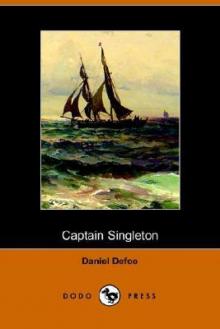 Captain Singleton
Captain Singleton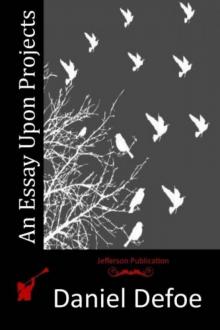 An Essay Upon Projects
An Essay Upon Projects Moll Flanders Moll Flanders Moll Flanders
Moll Flanders Moll Flanders Moll Flanders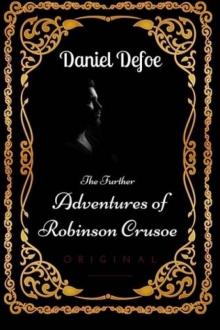 The Further Adventures of Robinson Crusoe
The Further Adventures of Robinson Crusoe Everybody's Business Is Nobody's Business
Everybody's Business Is Nobody's Business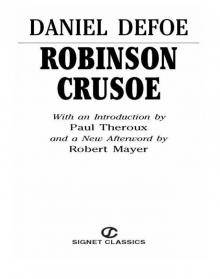 Robinson Crusoe
Robinson Crusoe The Storm
The Storm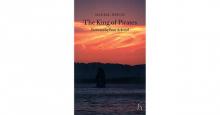 The King of Pirates
The King of Pirates History of the Plague in London
History of the Plague in London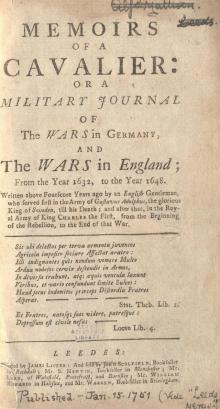 Memoirs of a Cavalier
Memoirs of a Cavalier_preview.jpg) The Life and Most Surprising Adventures of Robinson Crusoe, of York, Mariner (1801)
The Life and Most Surprising Adventures of Robinson Crusoe, of York, Mariner (1801)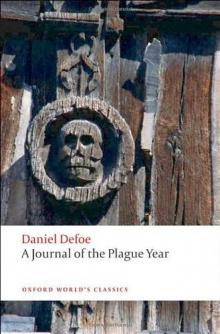 A Journal of the Plague Year
A Journal of the Plague Year_preview.jpg) The Life and Adventures of Robinson Crusoe (1808)
The Life and Adventures of Robinson Crusoe (1808)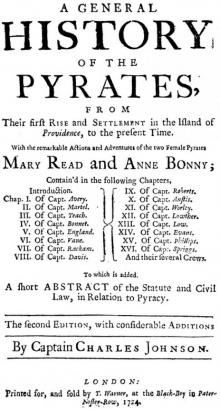 A General History of the Pyrates: / from their first rise and settlement in the island of Providence, to the present time
A General History of the Pyrates: / from their first rise and settlement in the island of Providence, to the present time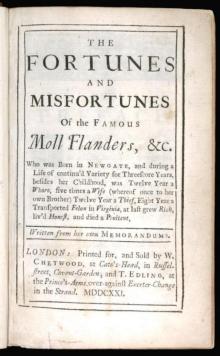 The Fortunes and Misfortunes of the Famous Moll Flanders
The Fortunes and Misfortunes of the Famous Moll Flanders_preview.jpg) The Fortunate Mistress (Parts 1 and 2)
The Fortunate Mistress (Parts 1 and 2)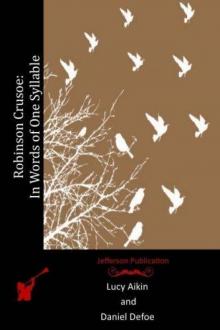 Robinson Crusoe — in Words of One Syllable
Robinson Crusoe — in Words of One Syllable From London to Land's End
From London to Land's End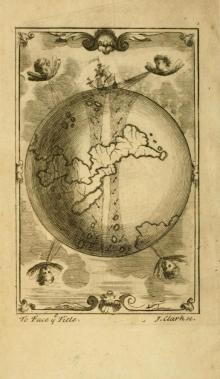 A New Voyage Round the World by a Course Never Sailed Before
A New Voyage Round the World by a Course Never Sailed Before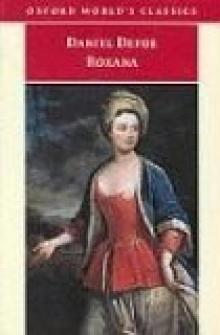 Roxana
Roxana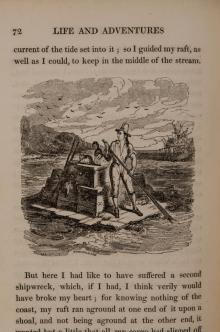 The Life and Adventures of Robinson Crusoe of York, Mariner, Volume 1
The Life and Adventures of Robinson Crusoe of York, Mariner, Volume 1_preview.jpg) Memoirs of Major Alexander Ramkins (1718)
Memoirs of Major Alexander Ramkins (1718) Dickory Cronke
Dickory Cronke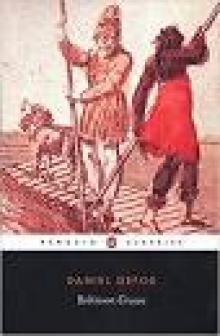 Robinson Crusoe (Penguin ed.)
Robinson Crusoe (Penguin ed.) Moll Flanders
Moll Flanders The Further Adventures of Robinson Crusoe rc-2
The Further Adventures of Robinson Crusoe rc-2